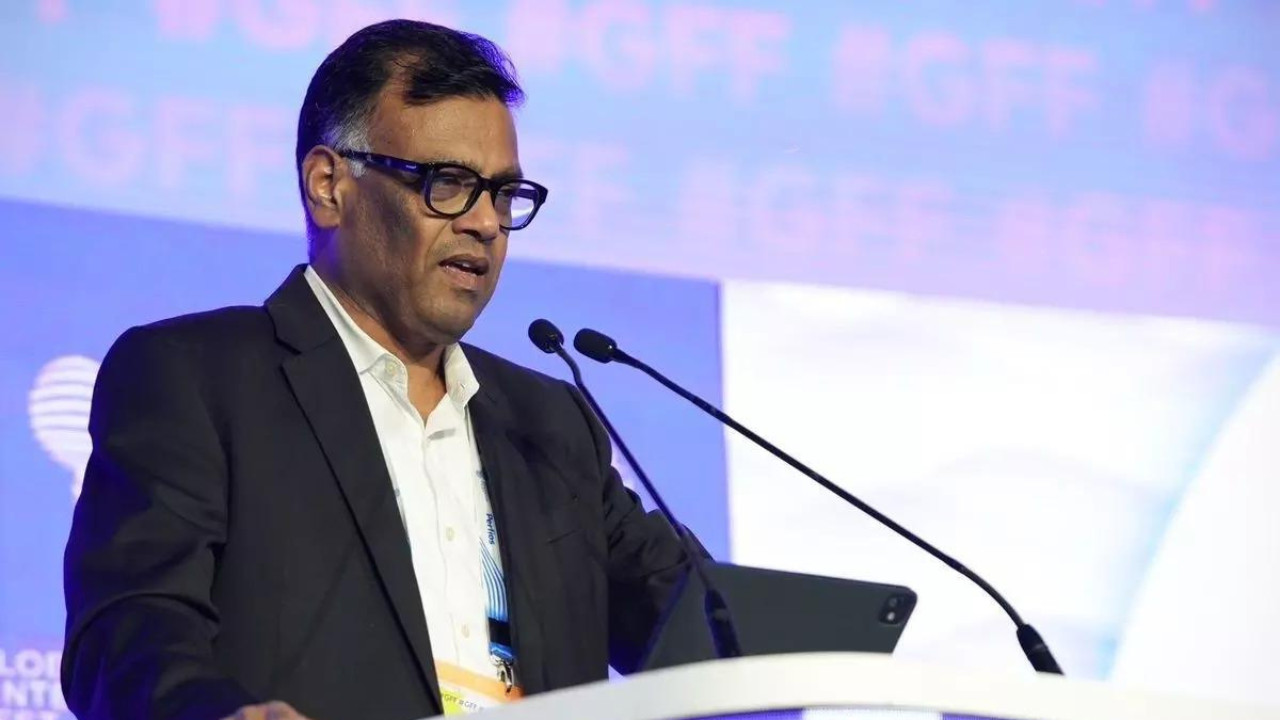T Rabi Sankar, Deputy Governor of the Reserve Bank of India, has been appointed as a part-time member of the 16th Finance Commission, according to the Finance Ministry. This appointment follows the resignation of Ajay Narayan Jha, a full-time member, due to personal reasons. Sankar will serve until the Commission submits its report or until October 31, 2025.
The Plot Thickens: RBI’s T. Rabi Sankar Joins the Finance Commission – What It Really Means
Okay, folks, let’s dive into something that might sound a little dry on the surface, but trust me, it’s got real implications for how India’s money is managed. The government has just announced that T. Rabi Sankar, currently a Deputy Governor at the Reserve Bank of India (RBI), is joining the 16th Finance Commission as a member.
Now, the Finance Commission might not be the kind of topic that sets social media ablaze, but it’s arguably one of the most important bodies shaping India’s financial landscape. Think of them as the architects of fiscal federalism. They’re tasked with figuring out how the tax pie, collected nationally, gets divvied up between the central government and the states. It’s a complex juggling act, balancing national priorities with the diverse needs of individual states.
So, why is this appointment significant?
Well, for starters, it injects a hefty dose of central banking experience right into the heart of the Finance Commission. Sankar isn’t just any RBI Deputy Governor; he’s been deeply involved in areas like payments and settlements, information technology, and even fintech innovation within the RBI. That’s a pretty impressive portfolio.
Having someone with such a solid understanding of monetary policy and financial stability sitting at the table is bound to influence the Commission’s thinking. We’re talking about someone who has been actively shaping the policies influencing inflation, interest rates, and the overall health of the Indian economy. To have that expertise directly contributing to the revenue-sharing formula is a game-changer.
Think about it. The Finance Commission’s recommendations inevitably impact things like states’ borrowing power, their ability to fund social programs, and their capacity to invest in infrastructure. Sankar’s background means he’ll likely bring a sharper focus to how these decisions affect macroeconomic stability and financial prudence at the state level. It’s not just about distributing the money; it’s about ensuring that money is used responsibly to foster sustainable growth.
But there’s more. The Finance Commission has traditionally been dominated by economists and administrators. Sankar’s appointment, bringing his deep understanding of the financial technology landscape, could really shake things up. We’re increasingly seeing how fintech is reshaping financial inclusion, impacting access to credit, and even influencing government revenue collection. It’s a fast-moving sector, and having someone who understands its nuances is crucial for crafting recommendations that are both forward-looking and practical.
Now, some might ask: is there a potential for conflict of interest? After all, Sankar is still technically an RBI Deputy Governor. Will his allegiance to the central bank influence his decisions on the Commission? While that’s a valid concern, it’s important to remember that he’s joining as a member, not as the head. The Finance Commission operates on consensus, and there are plenty of other experienced individuals who will be part of the decision-making process.
Plus, the RBI and the Finance Commission have historically maintained a healthy, albeit sometimes complex, relationship. They need to work together to ensure that fiscal and monetary policies are aligned. Having someone who understands both sides of the coin – the central bank’s perspective and the financial realities of the states – could actually lead to more collaborative and effective recommendations.
Frankly, this appointment feels like a strategic move by the government. It signals a desire to inject more financial expertise and a modern understanding of the economy into the revenue-sharing equation. It’s a recognition that the challenges facing India’s finances are becoming increasingly complex, requiring a multi-faceted approach.
Of course, the proof will be in the pudding. The 16th Finance Commission has a massive task ahead of them. They need to grapple with issues like rising state debt, the impact of climate change on state finances, and the need to incentivize states to adopt more sustainable development practices. They also have to contend with potential shifts in the economic landscape – from the rise of artificial intelligence to the evolving global trade order.
But with the addition of T. Rabi Sankar, the Commission seems to be better equipped than ever to tackle these challenges. It’s a move that suggests the government is serious about ensuring India’s financial future is built on a foundation of stability, innovation, and fiscal responsibility. We’ll be keeping a close eye on how things unfold. This is going to be interesting.
📬 Stay informed — follow us for more insightful updates!







